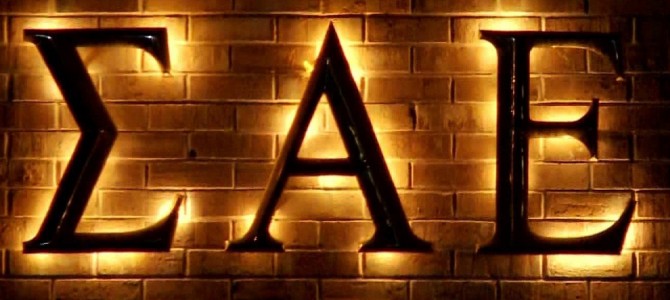Oklahoma University President David Boren has expelled two students from the Sigma Alpha Epsilon fraternity for playing a “leadership role” in making the fraternity’s ugly and racist video. As a fan of social stigma, I wish the revelation would have led these students to separate themselves from the school before expulsion was even a necessity. Apparently, they are without shame.
With that said, in his statement, Boren seems to adorn his condemnation of racism with extras that might assist him legally in the future. He claims that the students created a “threatening” atmosphere and “hostile learning environment.” Now, I’m not a lawyer, but this seems like a difficult thing to prove, and the sort of retroactive accusation that would allow public university presidents to expel nearly anyone who makes controversial statements.
For example, opposition to gay marriage is now considered a form of bigotry among many liberals. So could a public university president expel students who publicly oppose same-sex marriage or staged protests or made proselytizing YouTube videos? Surely a gay student could claim that a pro-traditional marriage protest was creating a threatening environment. Should we just trust that universities won’t? Could Jewish students who are exposed to ugly anti-Israel marches argue that the protesters are fostering a hostile learning environments for Jewish students? Considering the ugliness that often goes on at those protests, I imagine they would have a pretty strong case.
Moreover, Boren tweeted after the protest: “To those who have misused their free speech in such a reprehensible way, I have a message for you. You are disgraceful.” Whether people “misuse” free speech or not doesn’t change the protection it offers. The university acted quickly, no doubt, because it wants to avoid being painted as an institution filled with bigoted yahoos. But there are broader implications in the decision. And it seems that the initial reaction from most lawyers is that OU can’t expel students for the things they say.
Eugene Volokh dives into the legal aspects of the case:
First, racist speech is constitutionally protected, just as is expression of other contemptible ideas; and universities may not discipline students based on their speech. That has been the unanimous view of courts that have considered campus speech codes and other campus speech restrictions — see here for some citations. The same, of course, is true for fraternity speech, racist or otherwise; see Iota Xi Chapter of Sigma Chi Fraternity v. George Mason University (4th Cir. 1993). (I set aside the separate question of student speech that is evaluated as part of coursework or class participation, which necessary must be evaluated based on its content; this speech clearly doesn’t qualify.)
Beyond specifics, there are two obvious problems with the OU decision. First, hate and discrimination are different things. I have little doubt that one often manifests in the other, but it’s not illegal to be a racist. And second, we can’t let university presidents (or anyone else who runs a public institution) decide what kind of protected speech is permissible.









